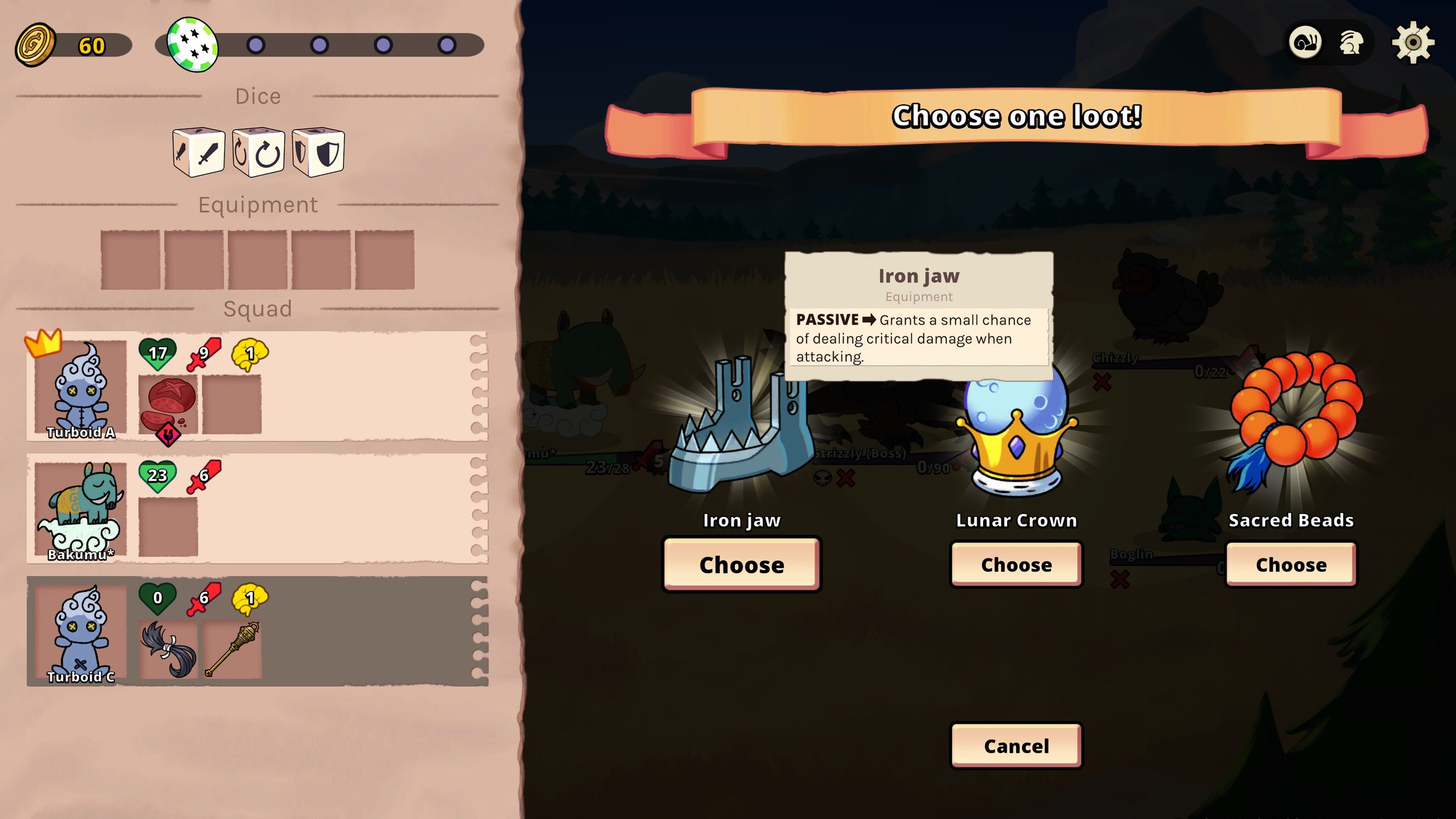Dicefolk [Review]
Dicefolk is a lovely mix of two different worlds. Take a deck builder, or in this case, a dice builder, and combine it with monster collecting, and you get this game. The hardest part about writing a review for Dicefolk is putting up the game long enough to write it.
Dicefolk’s draw is the three team monster battle. If you’ve ever played Pokémon Black and White, the battling works similar to that generation’s rotation battles. My monsters, known as Chimera, existed on the battlefield in a circle, with the middle being the lead attacker. Actions were determined by what I rolled on the dice and include attacking, defending, and rotation in various directions. As the run went on, I could buy new dice faces to upgrade my dice, and change up my actions. Pretty standard stuff so far.
Much to my surprise though, the most satisfying part of combat is not getting to have your own cool team of monsters–though that’s pretty neat. Rather, it’s the unique option to dictate the order of both your actions and the opponent’s actions. Enemies also have their own set of dice, and all their actions must be used, but players can execute them in any order. I never thought about doing this in a “builder” before, but it adds a lot of strategy to the battles. Constructing the order things happened to maximize my turn’s effectiveness gave it an enjoyable level of control and crunch to combat.
Really, though, that only scratches the surface of all the moving parts Dicefolk has to offer. There is a wide array of equipment to tweak Chimera, and tokens that offer one use actions during combat. Various talismans picked at the start offer different Chimera and different play styles. Then there that each Chimera has its own unique ability. Furthermore, there are “shiny” versions with BETTER unique abilities. Overall there’s enough here to offer a wide amount of replay value.
I really like the overworld in this game as well. Deck builders I’ve played in the past had me following a route to reach my destination, and choose between paths. With Dice folk, I could kinda meander all over the map and explore in whatever order I wished. I had an option to revisit shops as well, which added a nice degree of flexibility to planning my next move.
When runs ended in failure, which they tend to do, I earned points based on various stats from the run. These points unlocked new Chimera, equipment, events on the map, type of shops, etc. I know this is typical for this type of game, but there’s just something really charming about the game growing with me as I grew as a player.
Dicefolk does not overstay its welcome, and the amount of content feels appropriate for its price point ($14.99 USD). Runs last about an hour, and contain three random stages. It’s short, sweet, and serves more of a pallet cleanser between other things than something I would marathon. Yet this is strangely a blessing and a curse. At the time of this review I’ve played about 10 hours, and already have completed two of the four play styles. There’s just so many good ideas on display that I can’t help but wish there was more length to the runs. I’m very hopeful that maybe at some point the ideas on display will be expanded on, be it via update, DLC or sequel.
In the end, if you’re looking for a rouge-like dice builder, Dice Folk is a respectable, charming option that delivers on the gameplay side.
My score: 8/10




